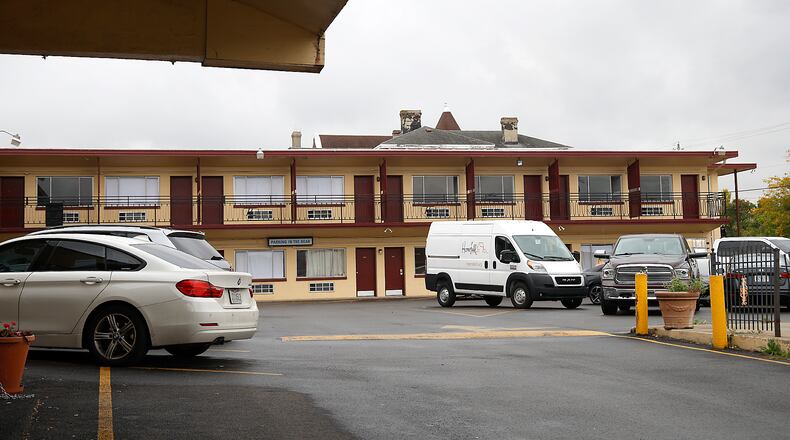“That’s why we are meeting as boots-on-the ground service providers,” Calabrese said during the Nov. 16 meeting. “Things are going to change week-to-week, and so keep us abreast of what’s going on.”
Elaina Bradley, executive director of Sheltered Inc., which provides emergency shelter and services to people experiencing homelessness, said during the meeting that these are meant to be informative and solutions-based.
“I know that this is only our second meeting, but I feel like it’s been very insightful and very beneficial of the information that we’ve been able to receive and pass out,” Bradley said. “I look forward to continuing to be able to do that so we can continue to get stronger and be able to face these challenges that we’re all faced with in the community head-on and come out with some solution-based information so we can fill the gap of services.”
The larger Homelessness Task Force, made up of housing and service providers, government representatives and other organizations, has been meeting every other month following an increase in people experiencing homelessness during the height of the COVID-19 pandemic.
In an email to members of the task force earlier this month, Tina Koumoutsos, housing coordinator for the Clark County Combined Health District and facilitator of the group, said the recommendations that the task force came up with were referred to the city and county, and a plan will be developed in early 2024.
Koumotsos said during the task force’s September meeting following questions regarding the shelter entry process she was “hopeful” Sheltered Inc. would attend, as it could clear up confusion and it was important for all stakeholders to be involved in the task force.
Importance of specific data
Calabrese said eviction data is critical so that direct service providers can think about how their programs will be affected in the immediate future.
OIC Executive Manager Kim Durnell said during the meeting that from Nov. 15 to Dec. 6, there are a total of 50 eviction cases pending at the Clark County Common Pleas Court.
Calabrese said that less than 50 people or families may end up actually being evicted, but rent is so high that it makes getting by significantly more difficult. OIC provides rental assistance to those who qualify.
OIC has a registry of 564 landlords, Durnell said.
Casey Rollins, director of Springfield’s Saint Vincent de Paul, said during the meeting parents may be wary of sharing they are at risk of homelessness or currently experiencing it because they are worried about encountering custody issues with their children.
“You’re more likely to get ... in custody care if you remain homeless and hide out in your car and people are wondering where your child is — not at school or whatever,” Rollins said. “Whereas, if you are in care of social services and you’re in a shelter, you are not homeless. You are in care and in shelter and receiving services, so that there is no threat of your child being taken from you.”
Amy Shaeffer, deputy chief operating officer of Homefull, said in Dayton, Advocates for Basic Legal Equality (ABLE) represents many individuals facing eviction cases, as those who go into court without representation are 87% more likely to be evicted than those with counsel. At the very least, she said ABLE will negotiate extensions, during which a person or family may be able to access services before being evicted.
Dayton-based nonprofit Homefull operates an emergency shelter at the former Executive Inn site, which was housing 25 families with 30 adults and 30 children as of Nov. 16, Schaeffer said during the meeting.
It joined Sheltered Inc. earlier this year in sheltering people experiencing homelessness.
In February the county terminated a portion of a $700,000 contract — of which about $495,000 was reimbursed — with Sheltered Inc. happened after “multiple violations” in regards to the reimbursement of funds were found following a review.
OIC now funds Sheltered Inc. on a per-head basis, which allowed it to reopen one of its emergency shelters that closed due to a lack of funding.
OIC has given more than $100,000 to the nonprofit and no issues have been found in a quality review of expenditures, Calabrese said.
Credit: Bill Lackey
Credit: Bill Lackey
Results from the larger homelessness task force
One of the broad recommendations made by the homelessness task force includes increasing the coordinated entry process capacity. The process, which designates an access point in the community, is meant to ensure that everyone experiencing homelessness who seeks helps has a place to stay and a way out of the system, if possible.
The task force also recommended increasing the number of affordable rental units and homes available, developing a permanent emergency shelter campus that includes supportive services, developing a permanent supportive housing campus, increasing the number of landlords who participate in subsidized housing programs, obtaining more specific and accurate data and using additional resources for administration and planning purposes.
About the Author

